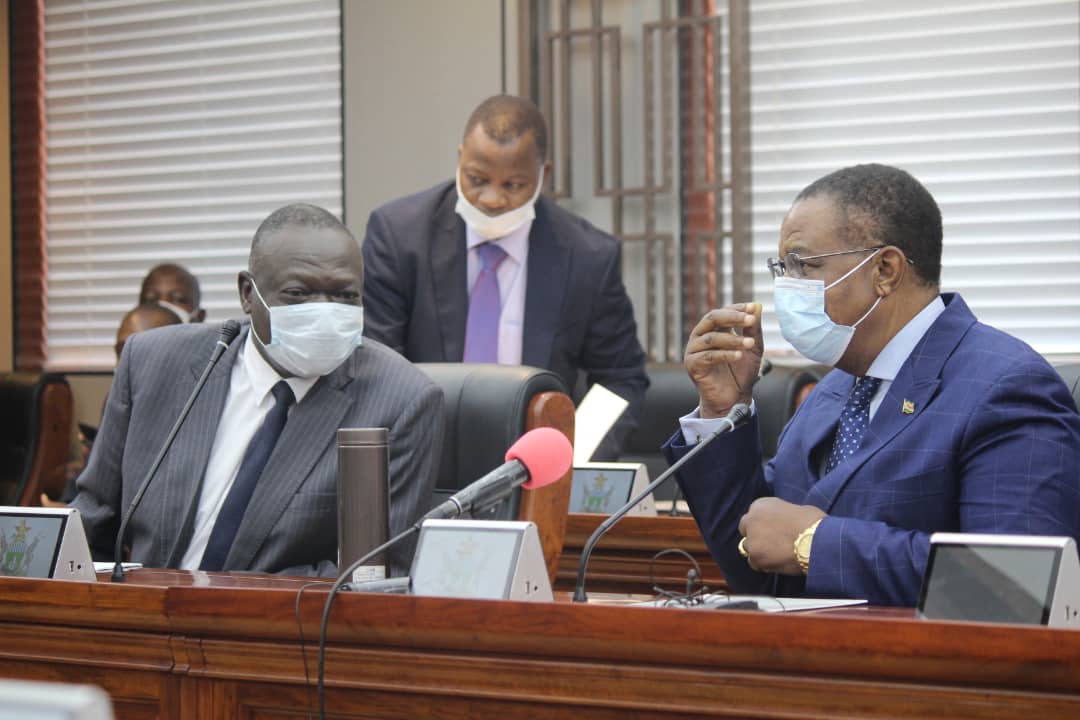By Anyway Yotamu
The government is targeting to increase the production of winter wheat hectarage from 24 186ha achieved in 2018 to 80 000 ha in 2020 winter season, with contract farming financed by a commercial bank and other private players and a target yield of 5 metric tonnes per hectare.
Speaking at a media briefing in Harare on Friday 3 April 2020, Vice President Constantino Chiwenga who’s the cabinet chairperson of Food and Nutrition said a combined output of 415 000 metric tonnes in 2020 is expected to surpass national demand per year by 15 000 metric tonnes.
“We have met with all relevant stakeholders including financial institutions, Ministry of Lands, Agriculture Water and Rural Resettlement, Ministry of Finance, Ministry of Energy and Power Development, Reserve Bank, Ministry of Industry and Commerce, Zimbabwe Electricity Supply Authority (ZESA) in preparation for the commencement of planting of the 2020 winter wheat crops,” said Vice President Chiwenga.
Vice President Chiwenga also highlighted that Cabinet has already approved and announced a pre-planting wheat producer price of ZW 14 143/ metric tonne with a view to enticing farmers to increase the area under wheat crop and to ensure the price remains attractive for the achievement of this objective, the price shall be reviewed regularly in line with changes in input prices using cost-plus 20% margin pricing policy.
He also assured farmers that, with the availability of irrigation water, an uninterrupted supply of electricity is critical with the Ministry of Energy and Power Development and Zimbabwe Electricity Supply Authority giving an assurance that barring major faults, electricity supply will be uninterrupted in wheat farming clusters for the period starting from April to September 2020 at a tariff of 55% of commercial rates.
The mobilisation and capacity building of farmers is currently underway across the country with the dissemination of information done through electronic, digital and print media to avoid large fiscal gatherings as part of ongoing measures to prevent the spread of coronavirus which has claimed many lives around the world.
